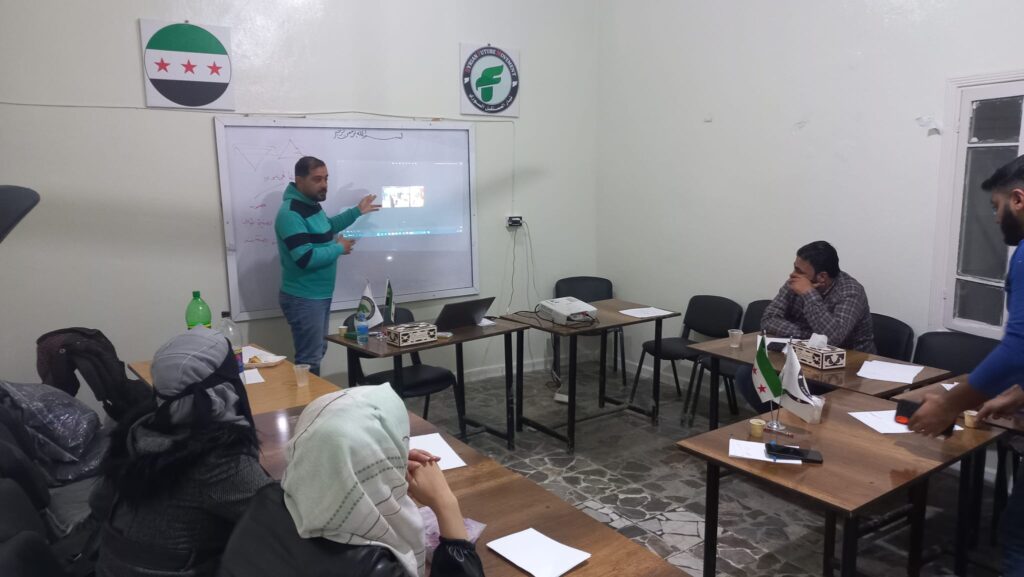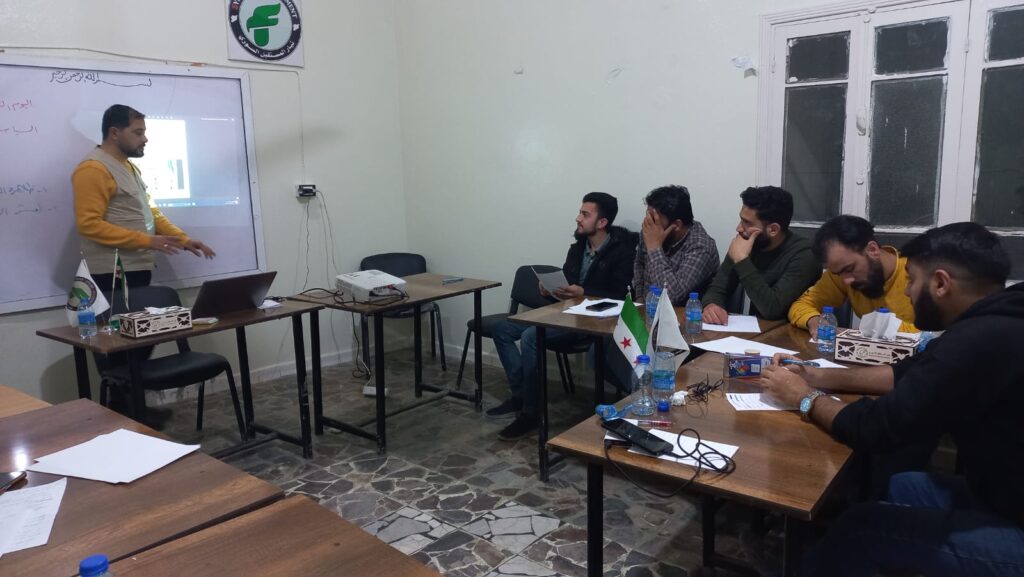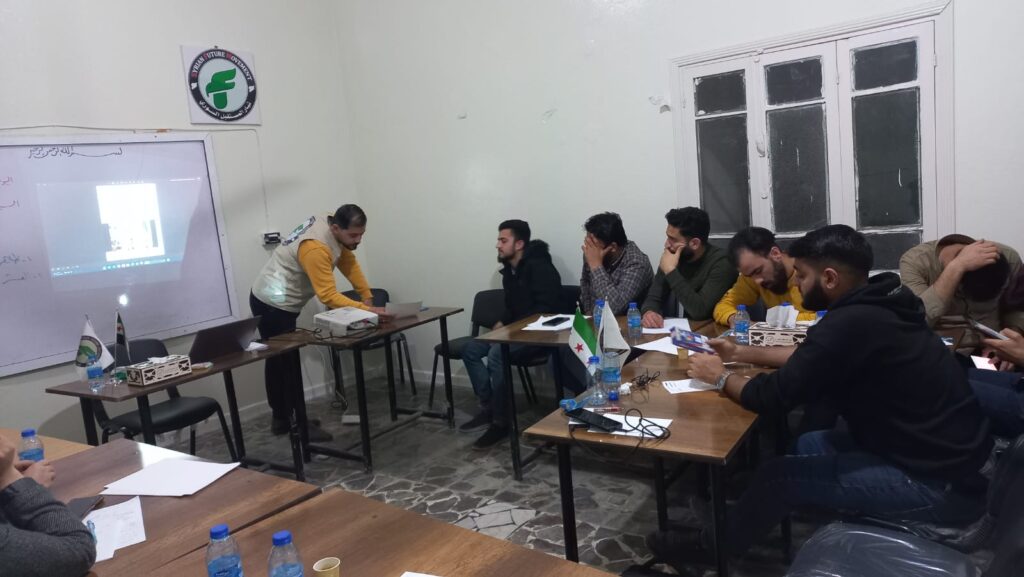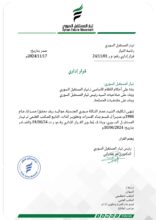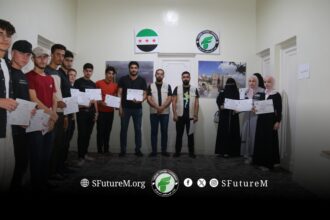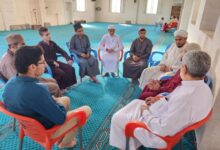The translation is: “Completion of the ‘Journalistic Editing’ training.”

The Syrian Future Movement (SFM) completed a new training titled “Journalistic Editing” in April 2024.
☆ The training targeted a number of specialists and activists, totaling (14) trainees of both genders, with (15) hours of training spread over (4) days.
☆ The goal of launching the training was to build the capacities of Syrian youth in the fields of journalism and media.
☆ Type of training: Physical attendance, where the trainees were present at the SFM office in Azaz city, north of Aleppo, and were introduced to the following skills:
- Enumerating the stages of media evolution.
- Differentiating between types of journalistic genres.
- Applying journalistic writing skills.
- The ability to conduct a successful journalistic interview.
- Planning for journalistic material.
- Knowing the types of sources.
- Distinguishing between news and reports, investigations and profiles, and opinion articles.
☆ The training topics were distributed over the days as follows:
|| On the first day, trainees were introduced to:
● The concept and history of media.
● Types of journalism (journalistic conversation – feature, etc.).
|| On the second day:
● Sections of journalistic material (headlines and leads).
● Journalistic templates (traditional school – developed school – modernity school).
|| On the third day:
● Yellow journalism.
● Propaganda.
● Headlines.
● Differentiating between types of headlines (rhetorical – subtle – comparative – quotational – composite).
|| On the fourth day:
● Opinion article.
● The news story.
● Practical application in editing.
● End-of-training test.
☆ The training evolved to include critiques of a set of examples (written and visual), identifying their strengths and weaknesses.
The training concluded on the fourth day, achieving its objectives, as evidenced by a survey conducted among the trainees to evaluate the training on various aspects such as the venue, the scientific content, and the trainers. The results were positive, with trainees expressing that the evaluation method was exceptionally professional, where each trainee wrote their assessment on a form that detailed the positives and negatives of the training and the challenges encountered.
